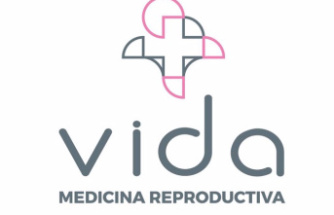Mark saw my recent column on moves by the pharmaceutical industry to expand direct-to-consumer advertising of prescription meds — you know, the TV commercials that make medicine look fun and sexy but include all that rushed verbiage about how the side effects could possibly kill you.
“I like to think I’m pretty well-informed about consumer issues,” Mark says, “but I never knew, or can’t remember, just how exactly drug advertising got unleashed on TV.”
He added: “It seems to have coincided directly with the era of runaway healthcare costs, but I don’t know exactly when it started.”
You came to the right guy, dude. I got your answers.
Direct-to-consumer, or DTC, drug ads on TV became a thing in 1997, when the Food and Drug Administration greenlighted such marketing.
Prior to that time, the thinking among policymakers was that consumers lacked the medical expertise to make informed decisions about prescription meds, and that such matters were best to left to doctors.
Deep-pocketed pharmaceutical companies argued that patients have a right to know all their options and that pitching prescription drugs on TV thus would benefit the public (and, coincidentally, boost sales). Regulators eventually bowed to industry pressure.
The impact was immediate. Spending by drug companies on TV ads hit $664 million within a year. By 2005, the industry was spending more than $3 billion annually on televised DTC ads. The figure nowadays tops $5 billion.
Is this a good thing? The pharmaceutical industry thinks so. DTC ads increase sales and steer patients away from cheaper generic alternatives.
For patients and the the U.S. healthcare system, many experts say DTC ads do more harm than good. The American Medical Assn. has called for an end to the practice.
Nevertheless, the drug industry is now seeking official approval to expand its DTC efforts by also promoting so-called off-label drug uses — that is, uses for which a drug wasn’t originally intended and for which it may not be fully tested. An FDA spokeswoman told me a policy change is under consideration.
This is a bad idea. A study last year by Canadian and U.S. researchers found that patients using off-label drugs without strong scientific evidence of effectiveness were 54% more likely to experience adverse side effects, such as an allergic reaction or gastrointestinal or respiratory complications. Or worse.
Only two countries permit DTC drug ads — the U.S. and New Zealand. Every other nation has concluded that its unwise and irresponsible to pitch potentially dangerous meds to people lacking the medical training to make smart decisions. Better to have patients discuss such things directly with their physicians.
Unfortunately, Mark, that’s not going to change any time soon. If the FDA caves to the latest pressure from drug companies, which seems likely, things will only get worse.
Got a question? Email me at AskLaz@latimes.com. And follow me on Twitter @Davidlaz.
Russia denies that intelligence agents were in contact with Trump's campaign team. 100,000 people living downstream of the Oroville Dam are now allowed to go home. Enrique Marquez Jr. didn't take part in the San Bernardino shooting on Dec. 2, 2015. When the pastor at a Texas church urged his congregation to embrace refugees, 300 members left.
Russia denies that intelligence agents were in contact with Trump's campaign team. 100,000 people living downstream of the Oroville Dam are now allowed to go home. Enrique Marquez Jr. didn't take part in the San Bernardino shooting on Dec. 2, 2015. When the pastor at a Texas church urged his congregation to embrace refugees, 300 members left.
Russia denies that intelligence agents were in contact with Trump's campaign team. 100,000 people living downstream of the Oroville Dam are now allowed to go home. Enrique Marquez Jr. didn't take part in the San Bernardino shooting on Dec. 2, 2015. When the pastor at a Texas church urged his congregation to embrace refugees, 300 members left.
Russia denies that intelligence agents were in contact with Trump's campaign team. 100,000 people living downstream of the Oroville Dam are now allowed to go home. Enrique Marquez Jr. didn't take part in the San Bernardino shooting on Dec. 2, 2015. When the pastor at a Texas church urged his congregation to embrace refugees, 300 members left.
An evangelical pastor loses some Republican members of his flock when his Fort Worth church bucks President Trump and welcomes refugees. (Gary Coronado / Los Angeles Times)
An evangelical pastor loses some Republican members of his flock when his Fort Worth church bucks President Trump and welcomes refugees. (Gary Coronado / Los Angeles Times)
Here's a look at how the Lake Oroville emergency happened.
Live updates >>
Here's a look at how the Lake Oroville emergency happened.
Live updates >>
It's a busy time in downtown L.A.'s flower district.
It's a busy time in downtown L.A.'s flower district.
Trump's national security advisor Michael Flynn resigns, officials work frantically to drain water from Lake Oroville, Congress has been busy writing bills, and federal officials say they haven't broadened the scope of immigration enforcement raids.
Trump's national security advisor Michael Flynn resigns, officials work frantically to drain water from Lake Oroville, Congress has been busy writing bills, and federal officials say they haven't broadened the scope of immigration enforcement raids.
Our editors found this article on this site using Google and regenerated it for our readers.













